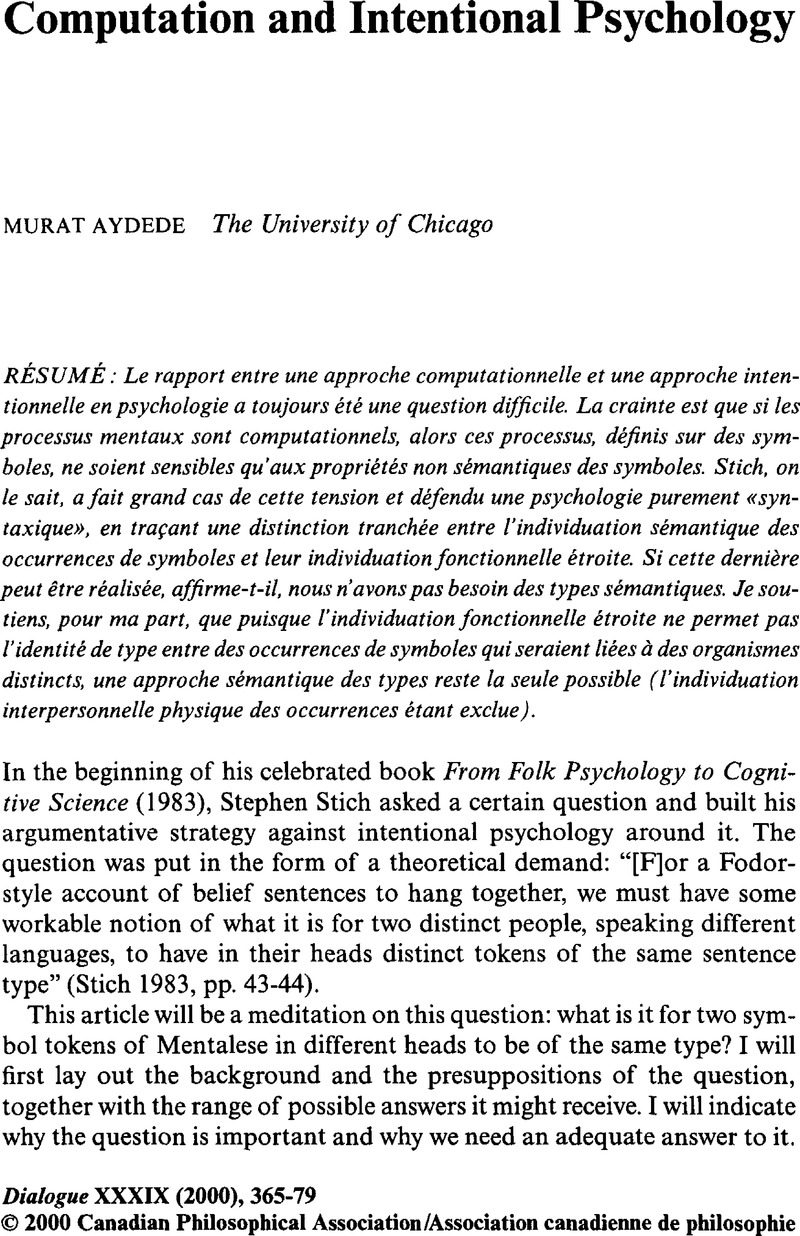Crossref Citations
This article has been cited by the following publications. This list is generated based on data provided by Crossref.
LUDWIG, KIRK
and
SCHNEIDER, SUSAN
2008.
Fodor’s Challenge to the Classical Computational Theory of Mind.
Mind & Language,
Vol. 23,
Issue. 1,
p.
123.
Onofri, Andrea
2015.
Mental Files and Rational Inferences.
Inquiry,
Vol. 58,
Issue. 4,
p.
378.
Onofri, Andrea
2016.
Two Constraints on a Theory of Concepts.
Dialectica,
Vol. 70,
Issue. 1,
p.
3.
Rescorla, Michael
2018.
An interventionist approach to psychological explanation.
Synthese,
Vol. 195,
Issue. 5,
p.
1909.
Onofri, Andrea
2018.
The Publicity of Thought.
The Philosophical Quarterly,
Vol. 68,
Issue. 272,
p.
521.



